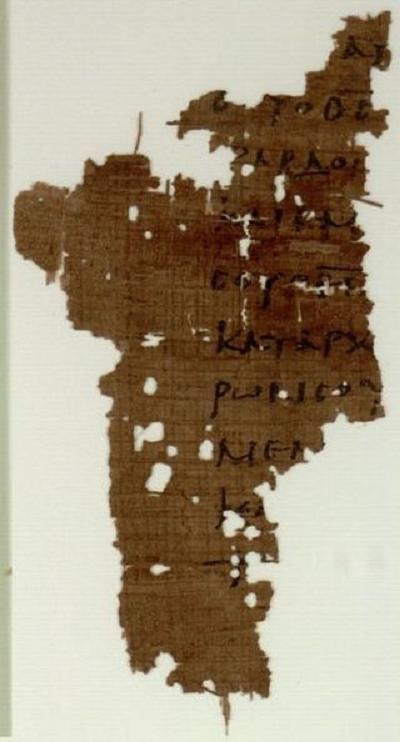| Change to Book/Chapter View |
|
|
|
Translation process is ongoing. For current status see details |
|
|

Papyrus 114 Date: Middle to Late Third Century A.D. Discovered: Oxyrhynchus, Egypt Location: Oxford, England: Sackler Library Contents: Hebrews 1:7-12
Hebrews 1 7 Of the angels he says, Who makes his angels winds, and his servants a flame of fire. 8 But of the Son he says, Your throne, O God, is forever and ever. The scepter of uprightness is the scepter of your Kingdom. 9 You have loved righteousness, and hated iniquity; therefore God, your God, has anointed you with the oil of gladness above your fellows. 10 And, You, Lord, in the beginning, laid the foundation of the earth. The heavens are the works of your hands. 11 They will perish, but you continue. They all will grow old like a garment does. 12 You will roll them up like a mantle,
but you are the same. Your years will not fail.
|
How to read these pages: The
translation to the left is based on the World English Bible. Words in regular
black font are words in the manuscript matching the Majority Text for that
passage. Words
in italics cannot be seen in the manuscript, since the manuscript is
fragmentary. These words are supplied for readability by the World English
Bible translation. Words
present in the manuscript but with some letters unreadable or missing are in blue
like this: blue. One Greek word often is
translated into multiple English words, and when this occurs, all the English
words are in blue. Words
present in the manuscript but with spelling or trivial word order differences that do not affect the
meaning are in green like this: green. If
the manuscript is different from the Majority Text, words in the Majority
Text that are missing from the text of the manuscript are marked through in red
like this: If the manuscript is different from the Majority Text, words in the manuscript that are not in the Majority Text are underlined in red like this: new words.If the manuscript differs from the Majority Text yet matches another well-known text, this is noted in the footnotes.
|
